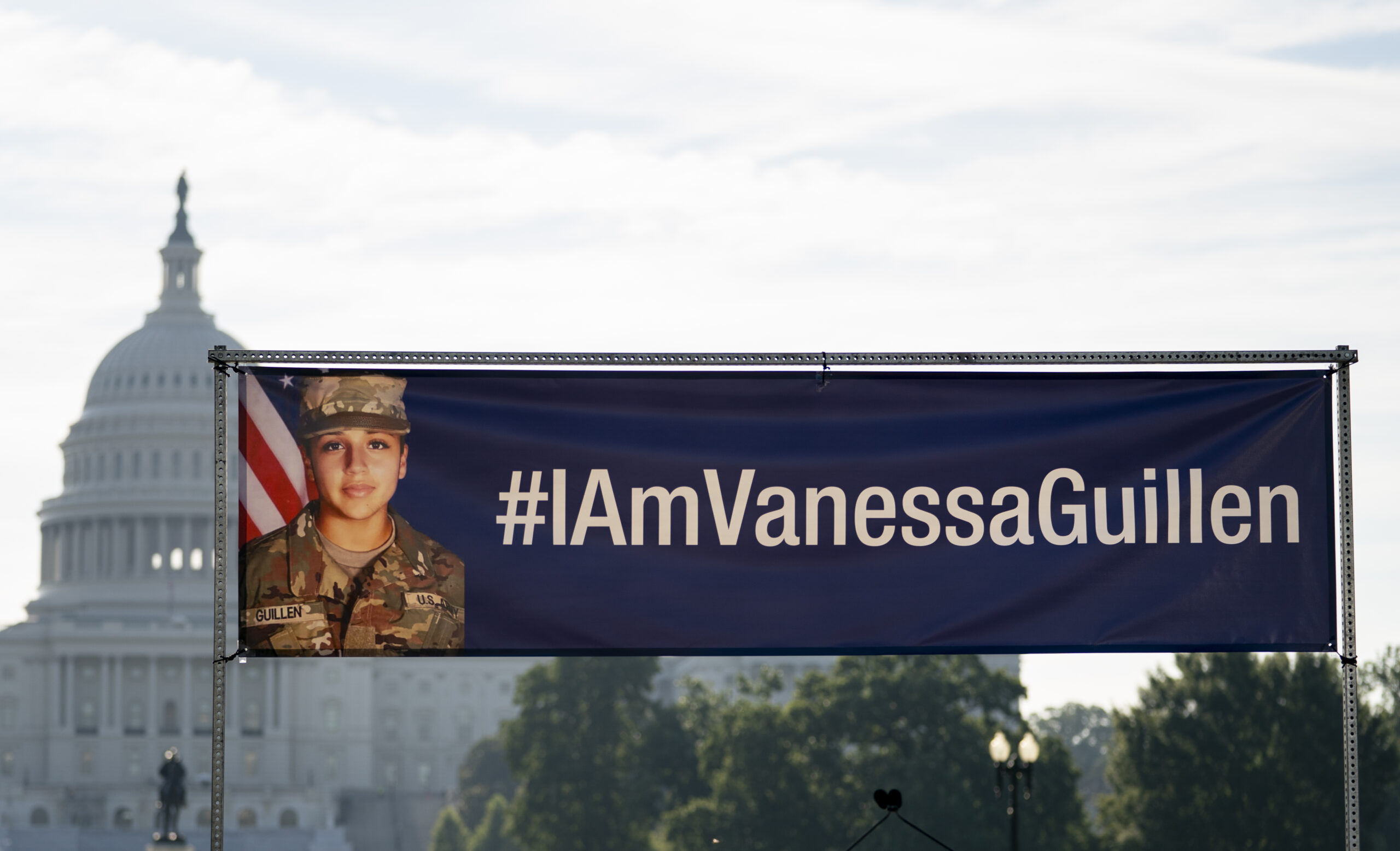

A long-awaited Army report on the disappearance and death of Spc. Vanessa Guillén last year confirms that she was being sexually harassed, just not by the man accused of killing her.
The report by Gen. John “Mike” Murray, the commander of Army Futures Command who was appointed last year to carry out the investigation, was released on Friday afternoon. Army Secretary Ryan McCarthy announced the investigation in September, saying it would be a “comprehensive look” at the actions taken at “every echelon of the command” in the weeks that followed Guillén’s disappearance.
Guillén, who was last seen on April 22, 2020, was reportedly in an armory room at Fort Hood, Texas, when she was hit in the head with a hammer “multiple times” by Spc. Aaron Robinson. Robinson then allegedly took her body to the Leon River, roughly 20 miles away from Fort Hood. He and his girlfriend at the time, Cecily Aguilar, allegedly buried Vanessa’s remains at the Leon River. Robinson died by suicide on the night of June 30, as law enforcement closed in on him.
Army investigators found that Guillén was sexually harassed by a superior noncommissioned officer in her unit, according to the report. She “informally reported that she was sexually harassed on two occasions, and in both instances her supervisor failed to report the harassment, and other leaders failed to take appropriate action,” officials said.
The harassment wasn’t related to her killing, according to the report, and the Army still has no evidence that Robinson harassed her. The Army did, however, find evidence that Robinson harassed another female specialist at Fort Hood between April and September 2019.
Murray’s report said the NCO “solicited” Guillén to “participate in a sexual act which she translated from Spanish into English as a ‘threesome’” before a field training exercise in September 2019. Another incident came the same month during field training when she was “performing personal hygiene … in the wood line” one night. The same NCO was conducting a nightly perimeter check when he came upon Guillén, who was unclothed; she told another soldier the next day, whose name was also redacted, that she told the NCO she was conducting personal hygiene. Yet the NCO returned to where Guillén was for a second time after completing the perimeter check, the soldier recalled Guillén saying.
One of Guillén’s fellow soldiers told investigators they had heard someone “talking about it to higher-ups,” and that two other soldiers and two NCOs “confirmed Spc. Guillén was upset/disturbed by these incidents.”
Guillén’s family has long maintained that she was being sexually harassed prior to her disappearance, but didn’t feel comfortable coming forward. Her sister Lupe previously told Task & Purpose that Guillén told her mother about the harassment in February 2020, just two months before she was murdered. Her mother Gloria told her to “rip up” her Army contract and “come back home,” but Vanessa insisted she would “take care of it.”
The news of Guillén’s harassment brought on an outpouring of stories from women across the military who said they too faced harassment or sexual assault during their service, using the hashtag #IAmVanessaGuillén. Her death resulted in an independent committee’s review of the climate and culture at Fort Hood, which found a broken Sexual Harassment/Assault Respond and Prevention (SHARP) program and an environment that was “permissive” of assault and harassment.
The committee’s report, released in December, identified a toxic and harmful environment for women at the base. As Task & Purpose previously reported, many soldiers at the installation feared retaliation for reporting assault or harassment, and it forced women at the base “into survival mode,” while leaders turned a blind eye to a “clearly identified high risk” of sexual assault.
Lupe and her older sister Mayra have maintained over the last year that Guillén told her family she was being harassed, despite Army investigators saying last year that they didn’t find any evidence to support the claim.
“They always say she was not sexually harassed, or [use] the word alleged,” Lupe said at Fort Hood on Feb. 19. “I want to hear ‘Vanessa Guillén was being sexually harassed’ … they’re too afraid to say it because they know what will happen.”
The Guillén family’s attorney Natalie Khawam said Friday they “are troubled that the names of the soldiers that sexually harassed Vanessa are being omitted.”
“It’s heartbreaking and frustrating for all of us,” Khawam said. “So much failure, from the commanders down.”
Featured photo: An image of slain Army Spc. Vanessa Guillen and #IAmVanessaGuillen is seen before the start of a news conference on the National Mall in front of Capitol Hill, Thursday, July 30, 2020, in Washington. (AP Photo/Carolyn Kaster)
Update: This article was updated after publication with additional details after Gen. Murray’s report was released on Friday.